greek lemony potatoes. ellinikos lemoni patatas
Am I committing plagiarism when I cook and publish a recipe then find it somewhere else? How far did I go before unconsciously infringing on copyright.
(This does not apply to the Lemony Potatoes - recipe down below- though we have been cooking them for years, they DO have an origin and it was not in my kitchen).
😂But is this even the right question. We should be talking about respect for the country cooks and celebrated chefs and cook book writers whose shoulders we stand on. We should be talking about thankfulness. Get over our pompous selves. Let’s invite everyone to our table. Let’s name them.
And as I write this about food. I also need to register my horror at the behavior of ICE troopers in the USA. If you have to wear a mask to hide your identity at work you are not on the right side. Your violence is horrific. Your tactics against families are formed in terror. You intend to spread terror. Wearing those masks proves you know what you are doing is wrong.
And I am terrified for the immigrant community I have worked with in Illinois. I hate the idea of those little children being treated harshly.
This is not about me (I know, I know, I know) but I feel guilty for my safe spot in Australia.
But the business of cooking and eating must go on. Every day. We need our strength so eat good food. Feed the beast.
Cooking is a daily event in my families. We all cook with raw ingredients daily. Every single day we text each other and ask “what’s for dinner.” It is not unusual for a girl to call down a mountainside “Hey Ma! What’s for breakfast!?!. Some of us not only cook and eat food but we share our recipes too. I share with you, as my extended family, food that delights me and nourishes me and mine.
When I ask you the question - whats for dinner - I really am interested in us sharing what we are cooking and how.
And being transparent and authentic about origins of that food is important in recipe creation. It is important in recipe writing. A cook does not share their recipe in a book if they don’t expect someone else to cook it. And if we share it we should say thank you. To them. In writing. Food has stories. A dish has a journey. We should note that journey. And note our influences. Share where we found the initial recipe or idea. That is the kind and sensible thing to do. Spread the love.
But what if we have studied a bunch of recipes over years then gone into the kitchen and invented the dish from our brains and our own background and our own collective memories but with the swirl of other voices. The original recipe is lost to the test of time. Is it ours. Do we own food? Note that. Write the story.
Most of my recipes are from my childhood. I have no idea who made the first shepherds pie in our family but for me it was my mother. Fair enough!
But sometimes the journey of a recipe to a kitchen is quite clear. I am writing about our old favorite the Lemony Potatoes we ate when visiting Greece seven years ago.
Then years later the lemony potatoes resurface in our Australia kitchen - made by my daughter. She had found a recipe. Memorized it and riffed from there. And like me she seldom uses actual stats. We use formulas. We store almost all recipes in our minds as pictures. Using muscle memory. And instinct.
1/2 this and 1/2 that. A handful of a certain herb, salt to taste. Enough potatoes to cover the pan without overlapping. Chicken stock from the freezer- may as well use the whole small bag. Don’t want to waste the rest.
Yesterday I asked her (and her large pregnant belly) into the kitchen to make her lemony potatoes so I can measure stuff for you.
But I also jogged around the internet looking for how other cooks are writing this recipe. We all do that. How much should we note of that search to be authentic.
I have been reading around about this plagiarism/copy-write conundrum and found some food for thought from Wil and Will.
Wil has worked in commercial kitchens for much of his career, tells stories about those times and calls himself a recovering line cook- he looked back to see what other writers of recipes did in the times before the internet and memes and utube. He wanted to know if they named their sources.
says “On almost every page of English Food by Jane Grigson and Roast Chicken and Other Stories by Simon Hopkinson with Lindsey Bareham, the authors never shut up about… wait for it… people other than themselves!
They attribute recipes to their friends, old colleagues, restaurants they’ve visited, and, of course, books they love”.
And that makes perfect sense me. That is how we do it. Many of the recipes I use I have inhaled either with my breakfast or as I scroll or from the recipe books I leave scattered in my children’s kitchens around the world or from my mothers and grandmothers kitchens and recipe books. They all have names and stories and jokes.
But almost definitely I could not tell you the original author of the lemony potatoes recipe. Or the name of the chef who first served these delicious mind blowing potatoes to us in Kalymnos - or maybe in Kos? I can’t remember exactly.
To be clear Plagiarism and copyright are two different issues.
The law notes that recipes themselves (ingredients and methods) are not copyrightable, but the exact text and presentation can be.
Write the recipe in your own words with any personal touches or modifications, and credit the original source if known, especially when sharing it publicly.
Plagiarism is not the same as copyright
I read yesterday some of
’s thoughts on plagiarism. I could not read the whole article until I am a paid subscriber, which is more than fair, but his words were good for clarifying my own thoughts on the subject.And as Will said to conclude, “moving forward I am not entirely sure I’m allowed even to share recipes with you anymore as I understand it, as its entirely possible that another chef might inadvertently use the same recipe as I do and accuse me of plagiarism”.
He is talking (with a dose of irony and tongue in cheek I think - though correct me if I am wrong Will), about the fear around what I call foundation recipes like my godmothers dressing and Will’s sourdough bread. Custard. Rice. Stuff we all cook using standard food stats.
They are muddy waters.
“Plagiarism is not the same as copyright infringement (which is using someone else’s work without permission), rather plagiarism is about presenting someone else’s work or ideas as your own without proper acknowledgment, such as failing to provide the source.
But as Will shares his gorgeous recipes and even though he is careful to share his sources much of his cooking is dependent on what is locally available - his recipes and how he arranges them is dependent on what is in the garden, what the bees produced, what is coming into the freezer from the fields, it is almost holistic.
I am not a food writer per se. My objective is to encourage you to grow more food and we can’t grow food without knowing how to cook it or store it for the winter. So my recipes will be the simplest ever so you can cook what you grow. Potatoes are easy to grow AND I have lemons and oregano.
I was taught my herby oil and vinegar dressing by my German godmother forty years ago. I attribute the recipe (that is really a method with equations) to her. She learnt it from a cook in Switzerland as a child; her parents sent her there during the war. Germany was getting dangerous so they sent the children away. That’s as far back as I can trace the dressing.
But it is actually everywhere! All over the internet which did not exist when she shared it with me.
But I can also see how we are all wary. Wary of people and cooks who are not confident enough to share their sources, and are afraid that to keep up and garner more likes and followers they want to appear more original than they are and they might shout shame even when realistically no recipe is really our own. All our work builds on another cooks work. Even when that cook is your Mum.
So don’t bite our heads off if we drift too close to your pots.
Recently one of our favorite cook book authors found her recipes almost word for word in another cook book.
With nary a thanks or reference to Nagi in this newly published book. That is clearly wrong. For me there is no discussion. We cook Nagi’s recipes in this Australian kitchen and appreciate her easy to follow cheerful style. Don’t steal. Many of us have lived such long lives without taking those good notes. I get that. But to copy a recipe word for word there is obviously a source. Name your source.
The rise of AI makes noting history, links, and authenticity more even important-critical, in fact. We need to protect and lift each other up.
The reminder here is to get better at noting our sources as we browse. I am more likely to trust a reporter who names her sources. As much as possible we should quote sources, include links and leave a few sentences of gratitude and respect. Tell the stories. Describe the journey. Share the joy of food with those who inspired us to eat it as well as cooking it to share.
Just do your best and be kind and sensible.
So, to today’s food!
My original source for Greek Lemony Potatoes is seven years old from when we were last climbing in Kalymnos in Greece. (Rock climbing). We ate them in a restaurant by the water. As it happens we even have a photo.
Interestingly potatoes were not even introduced to Greece until the 1820’s and over time traditional Greek ingredients like lemon juice, olive oil, garlic, stock and oregano were combined with the potatoes.
And every chef and home cook along the way brought their own personal touches and methods.
As we do ours.
Our recipe is based on the New York Times recipe. Link below.
Really I love everything with lemons. And I have tons of oregano. Not hillsides of it like in Kalymnos but enough.
Greek Lemony Roasted Potatoes
5 starchy potatoes (e.g., Yukon Gold or Russet), peeled and cut into the same sized pieces.
4 cloves garlic, minced
1/2 cup (125 ml) extra virgin olive oil
1/2 cup (80 ml) fresh lemon juice
1/2 cup fresh oregano
Salt and freshly ground black pepper, to taste
1/2 cup (180 ml) warm water or chicken brot
Instructions:
Preheat the oven to 180°C (392F)
Prepare the marinade by whisking together the olive oil, lemon juice, minced garlic, dried oregano, (thyme, rosemary/optional), salt, and pepper in a bowl.
Place the potatoes in a large greased baking dish and pour the marinade over them. Toss to coat the potatoes evenly.
Add the vege/chicken broth to the baking dish. (You can choose to cover the potatoes with tin foil for the first 30 minutes. I do. Daughter does not.)
After 30 minutes turn the potatoes gently to recoat them with the marinade, and bake uncovered for an additional 30 odd minutes. The liquid will have baked right off, leaving the potatoes golden and crunchy on the outside. With creamy lemony goodness on the inside.
Note: As the liquid reduces, it is absorbed into the center of the potato. Later the marinade will reapply to the potatoes, infusing them with rich flavour and creating the crunchy outside.
Our primary influence is the NYT Times recipe. And a wonderful dinner in Greece!
For some extra info I did browse Nikolopaa. His recipe is close too. And fun. But heavens! The advertising on these recipe blogs. What the hell! I hope they make lots of money because it about did my head in. I am not going back.
Bedtime Stories
The Secret Garden.
The Secret Garden by Frances Hodgson Burnett read by Cecilia from TKG
·Hit Like on your way past lovelies - believe me, it helps! ❤️
Love Celi





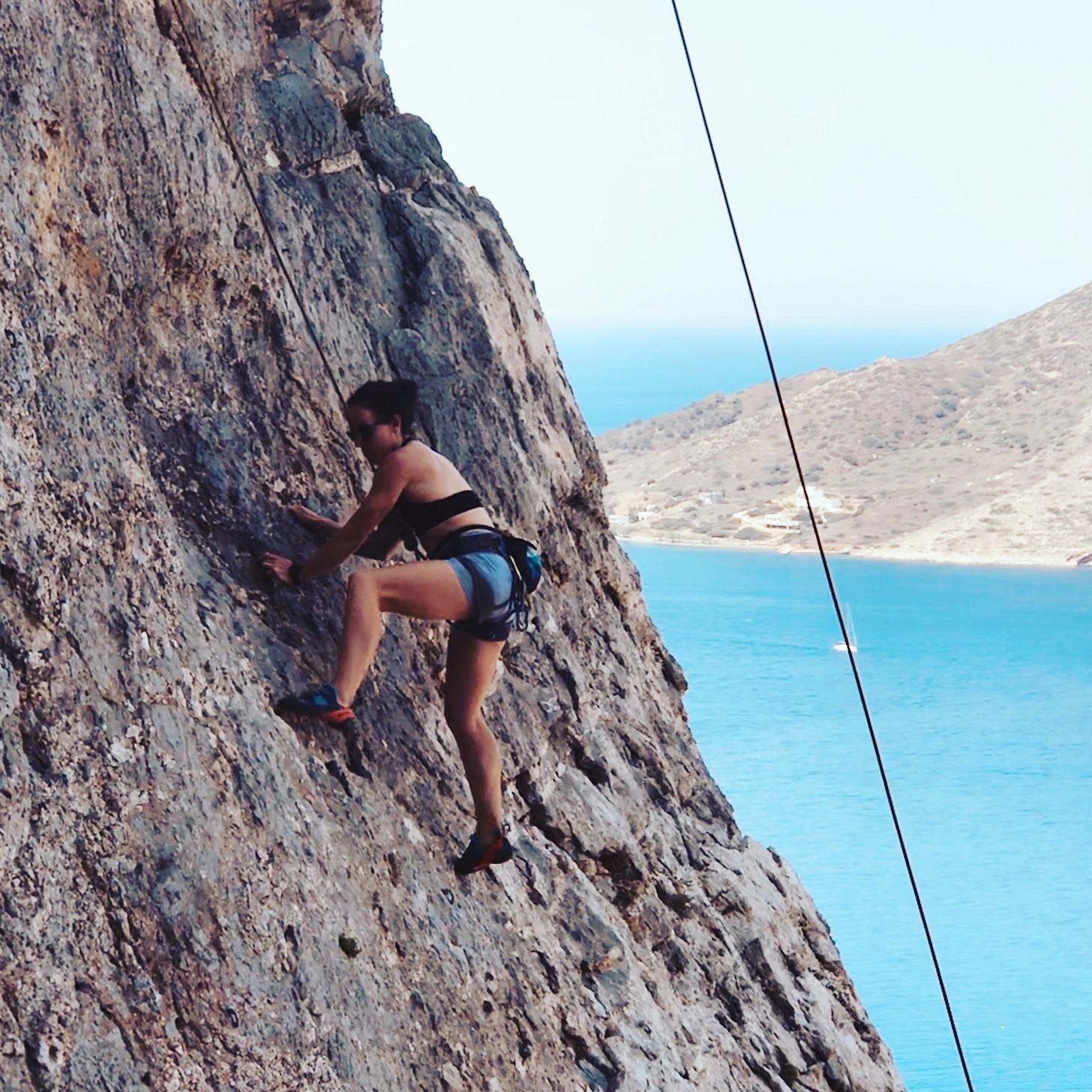
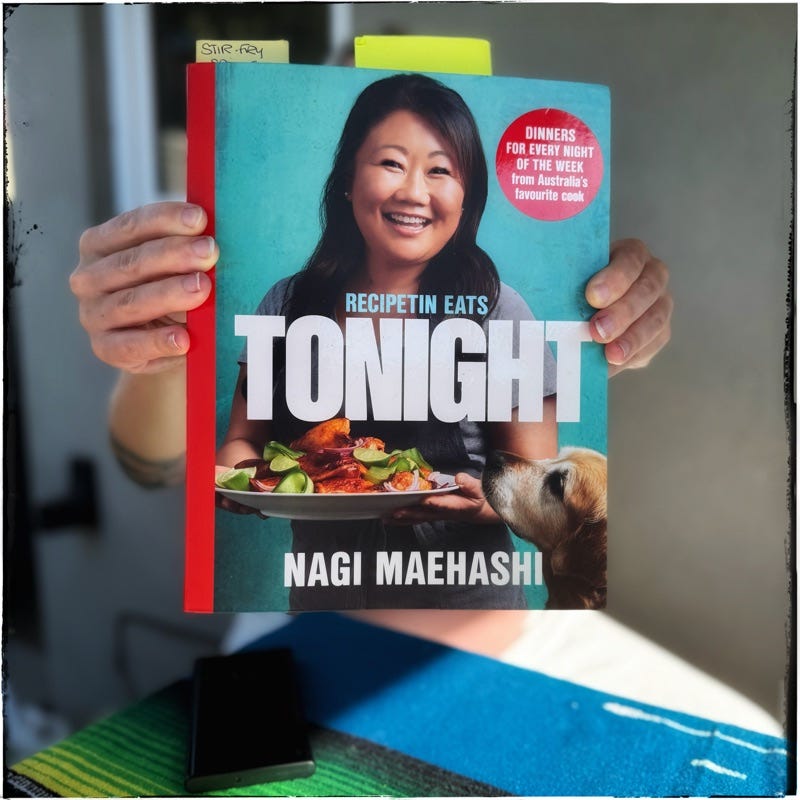
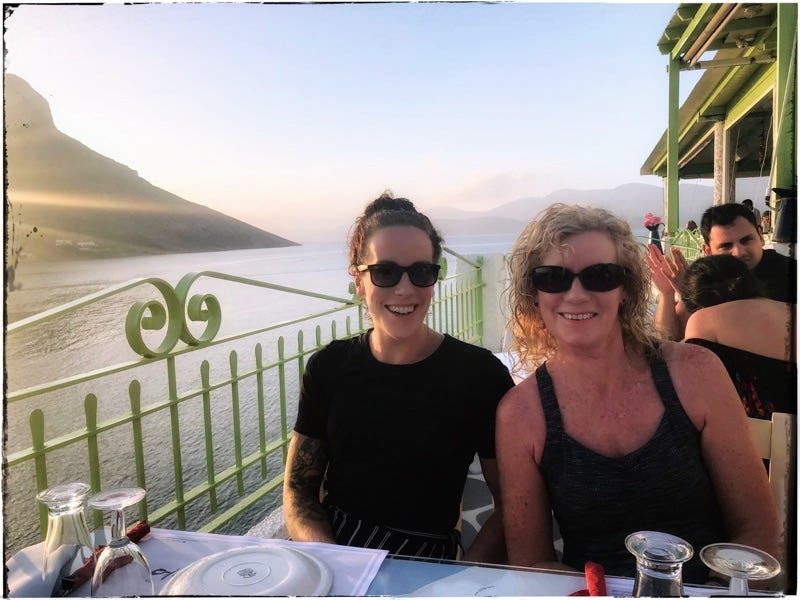
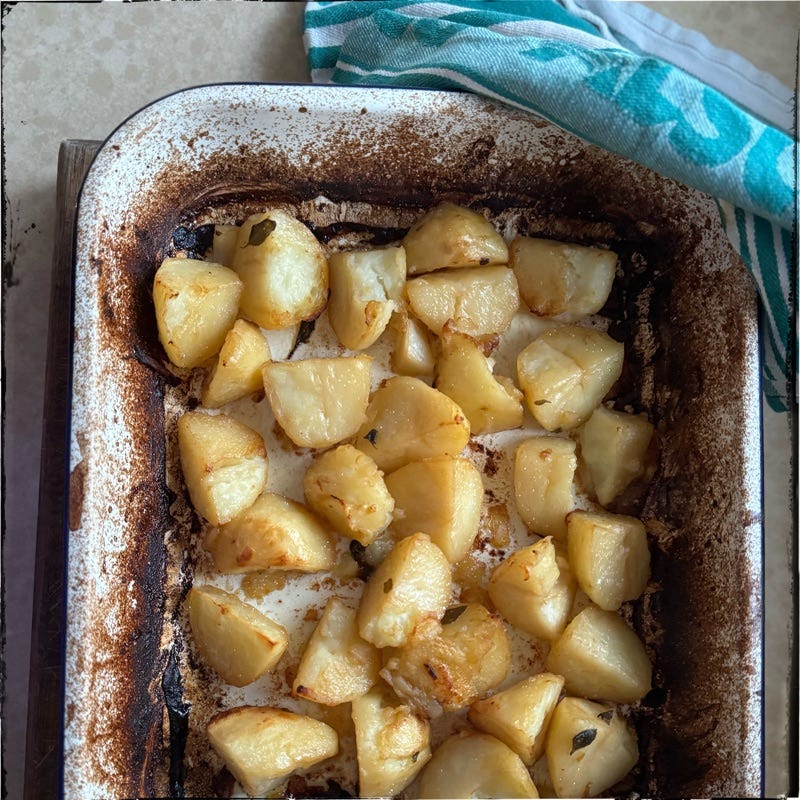
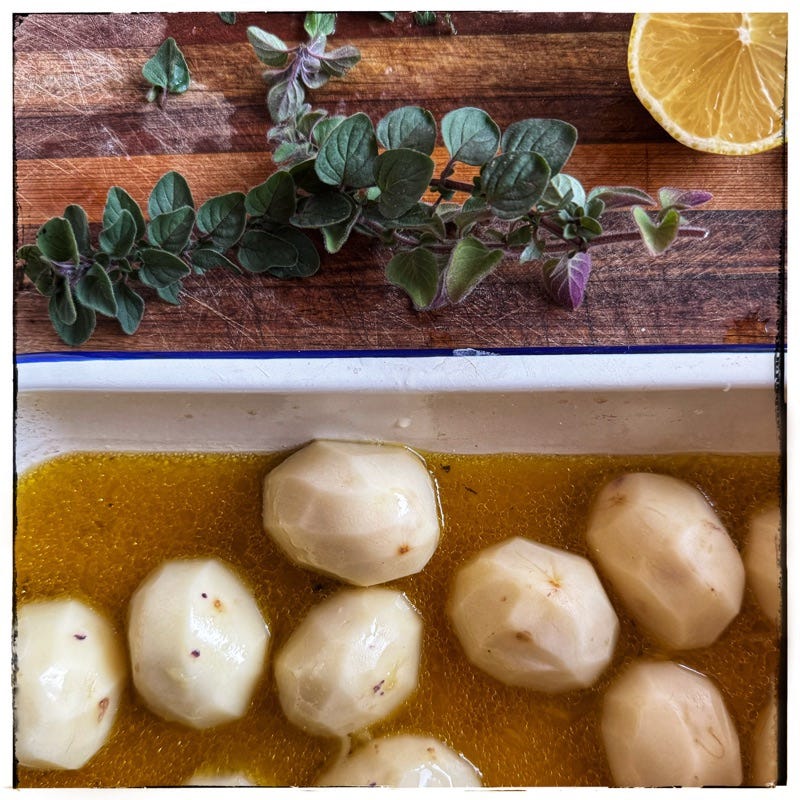

Potatoes are my comfort food - copyright and plagiarism are a problem but in a world of copiers hard to avoid - I like it when people say what influenced their work - I note on my paintings who did the original photo - it only seems fair - must be getting close to baby time - have you had all the baby showers already?
Yum.Thanks for the lemony Greek potatoes recipe. I will be making them soon.